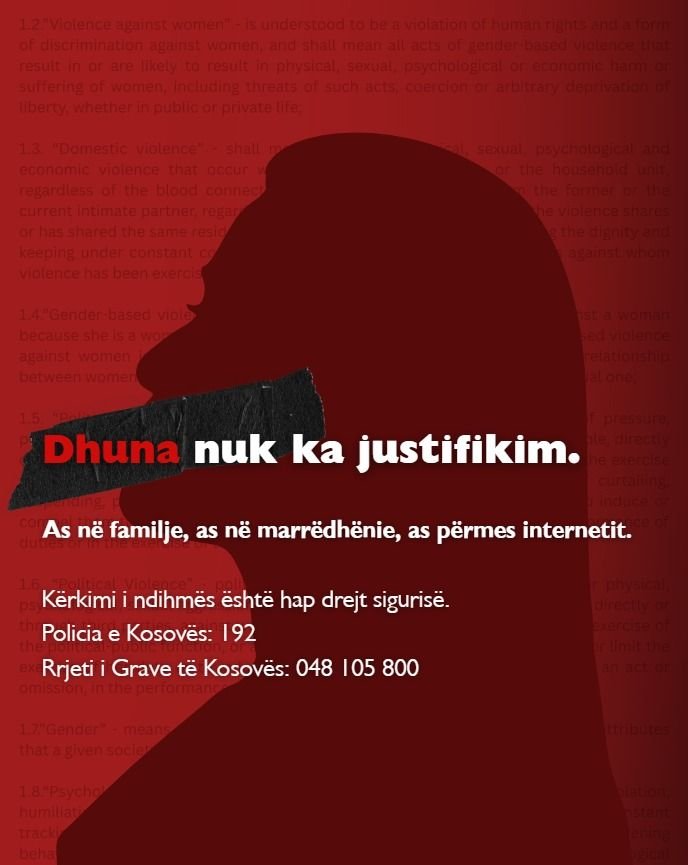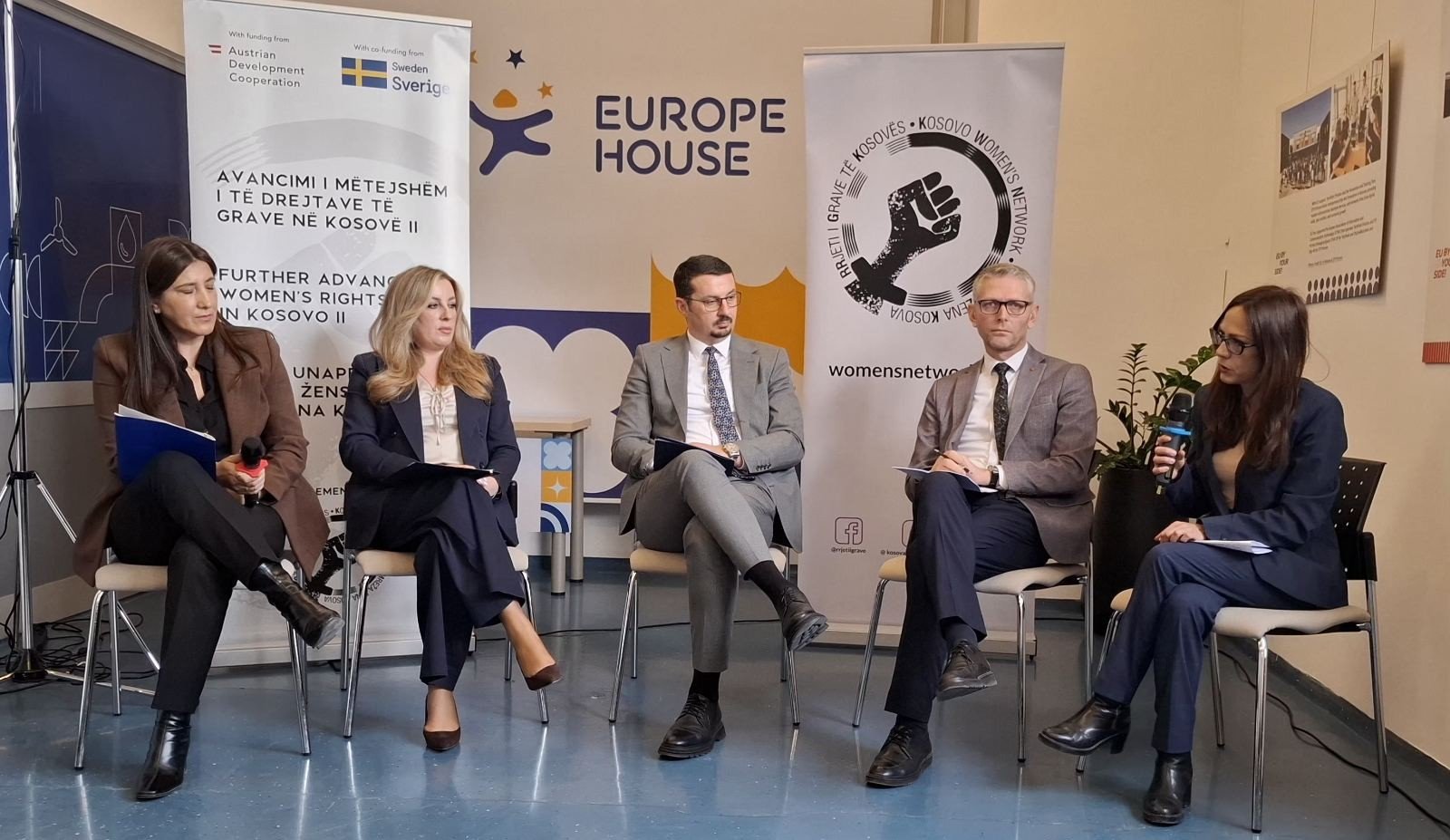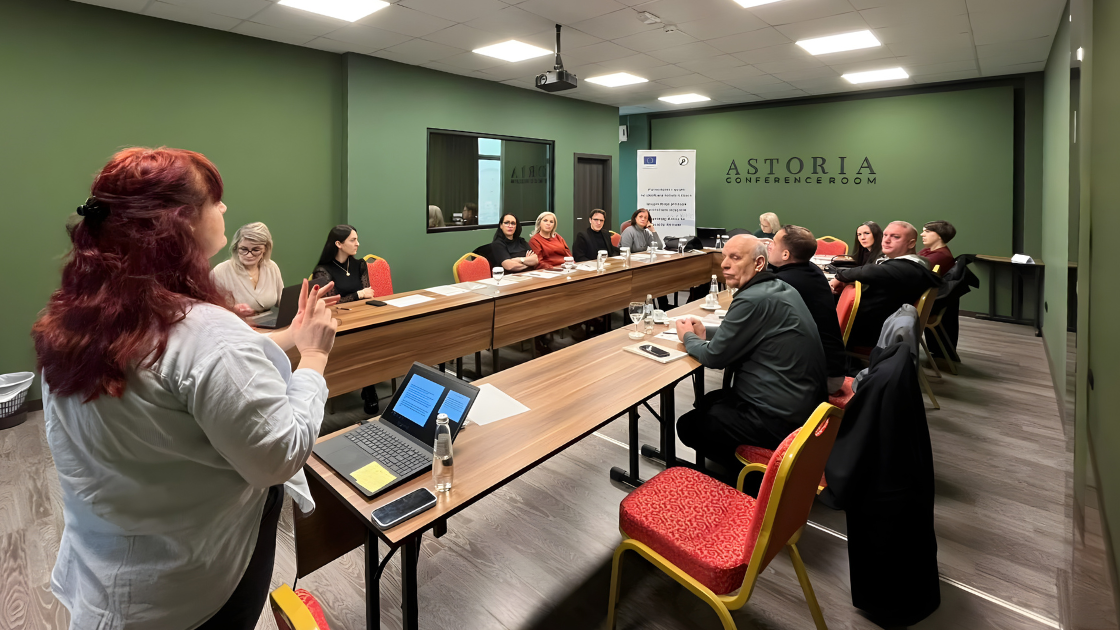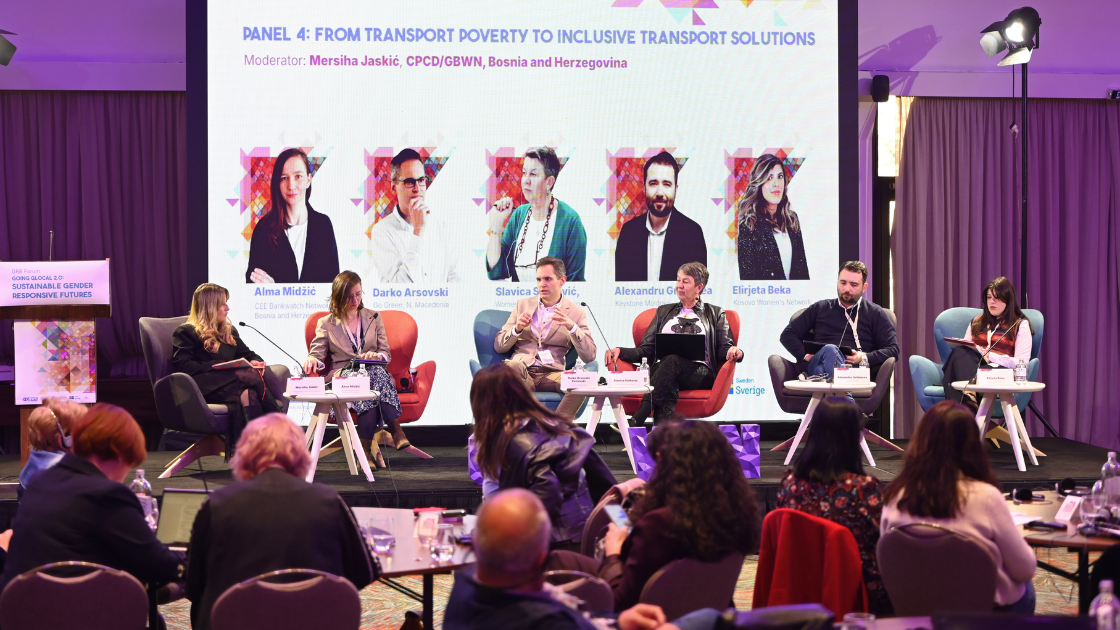On 6 November, within the framework of the action “Improving Civil Society Capacities to Enhance Access to Quality Social Protection for Diverse Women and Men”, supported by the European Union (EU) Office in Kosovo, the Kosovo Women’s Network (KWN) held a workshop focused on the topic “Social Protection Services and Filing Complaints.” The activity was led by Lawyer Fitim Gashi and attended by diverse representatives of civil society organisations, including the Organisation of Persons with Muscular Dystrophy of Kosovo (OPDMK) and Ruka Ruci, who helped facilitate the activity.
During the introductory session, partner organisations shared their experiences and ongoing work in the field of social protection. They presented their work on raising awareness and capacity-building about social protection services, starting from enhancing self-awareness within their own structures and extending it to the broader community.
Participants discussed the current situation regarding municipal action plans for persons with disabilities, noting that out of 38 municipalities, only 14 have adopted such plans. They also highlighted inequalities between municipalities in the provision of social services. For instance, one-time assistance is offered in some areas but not others due to budget constraints.
Participants openly discussed the daily challenges faced by persons with disabilities, emphasising that “usually, in cases when there is a violation of rights, people are afraid to file a complaint, especially persons with disabilities.” Concerns were raised that many fear losing their social assistance if they become employed: “Even though social assistance is not taken away from persons with disabilities, the fear still exists.”
Another issue highlighted was the lack of accessibility to information and services. “Another challenge for persons with disabilities is reading and writing, but this is also found among their personal assistants,” one representative noted. Participants also mentioned that limited access to the online platform e-Kosova and the unavailability of documents in languages other than Albanian further complicate access to services. “Not everyone has access to the internet to check which documents are needed to apply for social services,” one participant remarked. “People have to wander around to collect different documents, as not all of them are listed at once.”
Discussions also addressed the unprofessional and predominantly disrespectful behaviour of members of commissions responsible for reviewing social service requests. “The evaluations of the commissions are bad, in-human,” said one participant, stressing the need for greater accountability within these bodies.
Lawyer Fitim Gashi informed participants about the procedure for filing complaints and their legal rights under the Law No. 08/L-255 on Social and Family Services. He further encouraged participants to report cases of abuse, highlighting that the Action ensures assistance during the entire complaint process.
Throughout the session, participants emphasized the importance of monitoring institutional behaviour and reporting cases of misconduct. “In case you have applied for a social service and have not received a response, you should follow up by email, requesting an answer to your application,” advised Gashi.
The training concluded with an open discussion on the importance of awareness, accountability and advocacy. Participants agreed that citizens should be better informed about where and how to file complaints and requests for social services. As one participant summarized, “The law recognizes our rights, but without enforcement, those rights remain only on paper.”







